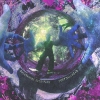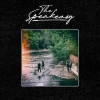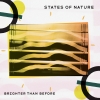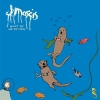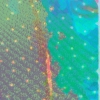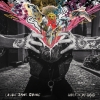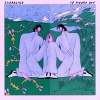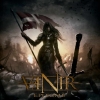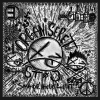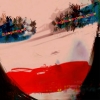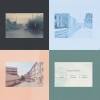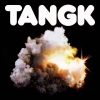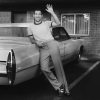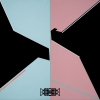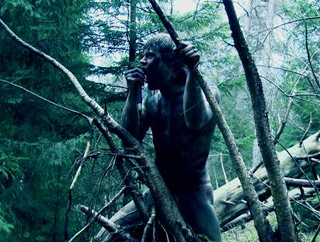
author AP
date 28/09/09
While the band was forced to commence sound checking at our scheduled interview time, I was ushered into the band's backstage room and told to enjoy a few beers to ease the wait. Couple that with the few I'd already drank outside and I was in a merry mood. Not just because of the alcohol, but because the concert tonight was going to be mind blowing, it had to be. Anyway, as a result the interview morphed into a casual conversation about the band's new album with plenty of laughing and drinking, as well voice recorder malfunctions, and below you will find this conversation edited into a more formal format. Ladies and gentlemen, I give you Denmark's number one live act, The Psyke Project:
RF.net: First of all, congratulations with the new album, one of the best albums released this year if you ask me. What kind of reception has it met from the critics and fans?
Mikkel: We've gotten a lot of great reviews so far - it's actually been overwhelming to receive such great reviews all over. Almost.
Jeppe: I think there was one French magazine that didn't understand the record and gave us one out of six or something. They didn't like the vocals. He needed more power metal I think (laughs).
RF.net: On the promotional material I received with the album, the sound of "Dead Storm" is described as an interpretation of Scandinavian heritage and nature. Can you elaborate on the title and theme of the album?
Mikkel: We wanted to be inspired by where we live, and by our neighboring countries. We like the Scandinavian nature. It's this melancholic mood you get when it's dark for a long time every year, and we want to convey that into the music. Musically we were inspired by these kind of old melodies - not exactly like we wanted to copy them, but be inspired by the lyrics of those old songs. Many of the songs are about the hardships and death that came with living in these places back in the day.
RF.net: When its release date was originally announced, the album's title was revealed as "The Great Telos". What was the story behind that title, and why did you decide to go with "Dead Storm" instead?
Jeppe: We worked with the title, "The Great Telos", and that was actually just in the beginning of the process, while we were still talking about which influences we wanted this album to have. We found out that "The Great Telos" was a bit too hard to
get, the meaning of it. The meaning behind the title was to get the listener to ask, "Telos, what is that?" and search and dig deeper into the album - like our music is. Our music is music that you have to listen to several times before you understand it, and then you find more nuances. That was the idea behind that title. But as we went along with the idea we came to the conclusion that it might be too narrow, or too hard to understand.
Mikkel: It's a hard title to comprehend. Telos is the meaning of things. If you have a seed for instance, the purpose of that seed is to become a tree. The title was too high-flying, you know?
RF.net: Judging from the music, the inspiration has come from a variety of different sources?
Mikkel: Definitely. We had a lot of different inspirations. I myself listen to a lot of traditional Arabic music with flutes and, I'm not sure what it's called in English but these instruments that they use are like yoga to me. I think part of the record is like that. For instance, the songs that have a long build-up are inspired by music that you can meditate to. Then we had a variety of bands that we listen to of course. We are very much inspired by Will Haven, for example. They have the same thing about their music, it's meditative to listen to because it becomes like a drone.
Jeppe: When we compose our music, we speak a lot in picture terms and images. What does this place in the music mean, what kind of images does it produce? We talked a lot about that. If it produces an image of a raging sea, or a big storm, or something fragile. In that respect you can say that we are inspired by natural images as well. We try to incorporate it into our music, so that if there's a big storm, then in the music there is a noise storm.
Mikkel: Yeah, we use a lot of pictures to describe what we do. That's how we discuss things in the rehearsal room. We discuss how a natural phenomenon occurs and stuff like that.
RF.net: Maybe you could incorporate that into your live shows, you know, project some images or videos on the backdrop?
Jeppe: That could be a good idea. We tried to work with it before but it didn't really catch on the first time. We might try it again though.
RF.net: Would you call "Dead Storm" a concept album?
Mikkel: No, not really, because it's inspired by so many things. First of all it's inspired by our Scandinavian heritage and that's a very wide area. So you can't really say it's a concept album because it doesn't have a central concept, but rather a central theme.
RF.net: "Dead Storm" sounds somewhat different to anything the band has done before. Some people have even gone as far as to call the new album a doom metal hybrid with hardcore influences. How would you describe your music, especially on this new album?
Jeppe: I still think we have our old sound. On the other albums we evolved as a band and a lot of things have happened. We lost a guitarist, and got a new guitarist, and that adds to the new sound.
Mikkel: I can see why some people call it doom, because it's got these slow build-ups. There isn't any drones in it, but the music is really repetitive. The songs stress and release. I'm okay with people calling it doom, but I haven't really got any term for it myself.
RF.net: Say your grandmother asked you at a tea party, "so, what is it that you do these days?" How would you explain your music to her (or to anyone else for whom Fall Out Boy is a heavy metal band)?
Jeppe: Yeah we have a lot of those (laughs). People always ask me, "so you play hard music, is it like AC/DC?", and the first thirty times I've tried to explain that no, it's not AC/DC, it's slightly different. We make very hard, noisy atmospheric stuff, but at the same time fragile.
Mikkel: "Like Metallica?"
Jeppe: (laughing) Then you just roll over and say yeah, like AC/DC.
RF.net: You recorded the album in Sweden, with Fredrik Nordström and Henrik Udd. Can you tell me about the recording process behind "Dead Storm"? How did these two gentlemen contribute to the album?
Mikkel: They contributed a lot by just talking to us about the sound. We discussed it a lot, the feel of the songs. The best thing they did was that they allowed us to use the recording studio when they left and we got to play along and do whatever we wanted. They came up with a lot of ideas about how to put different sounds on the guitars, try things out.
Jeppe: They're not afraid to push you and say, "hey, let's try this, see if you like it". That's a good producer. One who is not too overruling, but not afraid to pressure you into doing something.
Mikkel: They didn't ask us to change the songs, not even parts of them. Not like a producer telling us what to do. They just came up with ideas. [Someone from The Burning walks in and interrupts the sentence].
Jeppe: Intermezzo (chuckling).
RF.net: Like all your albums, "Dead Storm" was recorded live. What advantage does it bring to record an album live?
Jeppe: You get much more feeling and sensation in it. It's how we function best when we record. We tried doing layered production but it never really worked out for us. We didn't get the right nerve in the music, and we found out that recording live is the way to get that nerve because you can feel it. We take it all including the flaws it involves and so on.
Mikkel: When everybody plays at the same time, you're forced into this creative force. You feel like everybody contributes to the creativity and it's very intense. We had seven days to finish this stuff, and there was a lot of material that we had to record. When it's narrowed down to such a little time span, it forces everybody to be creative. It's way better than using a lot of time, and some of the guys are drunk all day and... I don't think it would work for us.
RF.net: In connection with recording the new album, you filmed a video for "Winter". Judging from the footage, it looks like making it must have been no fun at all?
Jeppe: (laughing) Ask the guy behind you [ed. Bono].
Bono: Urghhhhh.
Jeppe: It was really hard. It was fucking cold. We recorded the video in the beginning of March and it was freezing. We had to run around naked and cover ourselves in mud and rotten water. It was horrible. After each shoot your feet were like two lumps of dead meat, you couldn't feel them at all. It was a hell of a lot of hard work carrying all the gear around ourselves, but I think the end result turned out well.
RF.net Can you tell me a little about the background for the video and the song?
Mikkel: Actually the guys who recorded and wrote the video came up with it on their own. We asked them to be inspired by our music and we gave them carte blanche to do whatever they wanted. Or well, we told them some things we wouldn't do, and they made us do it anyway. It worked out fine with the video. The song itself is once again a description of a natural phenomenon.
RF.net: The guitar and bass playing on this new album sounds like you went for a pretty minimalist approach. No shredded solos, sweep picking and so on. Was this your intention?
Mikkel: Definitely. Less is more. If it's simple it often works, but if it's too simple it might come across as unintelligent. I think in our band the minimalist approach works fine.
Jeppe: We talked a lot about going back to the "Daikini" album. Or not going back to it, but we talked a lot about it. We liked the idea of going back to doing the simple stuff and getting the most out of the simple stuff. And that can be hard to master without it getting boring.
RF.net: Do you have any crazy tour stories to share with our readers? What was the infamous Aberdeen incident about, for example?
Jeppe: Well, the story was that there was a hooker outside the bar and a guy came up to her (I don't think he liked hookers) and decided to punch her in the face. She ran, and he ran after him, and she turned around and slashed his cheek open with a knife. Then he was really pissed, and she ran into the bar where we were playing, screaming "he's trying to kill me!" or something. So all the folks in the bar turned against him and started a fight or something.
Mikkel: By the way, I got this during a sound check in Iceland [ed. a tattoo on his shoulder of the Icelandic flag, under which it says "Norway"]. It's kind of stupid, because I was so drunk. It was fun though.
RF.net: Because I study over there, I know that a lot of people in the UK are willing to sell their blood to see The Psyke Project live. Can we expect to see you over there in the near future?
Jeppe: Well, we're negotiating. We're hoping to get over there, and we're working very hard on it. We were there in 2005 and 2006 and we're definitely going to hit the UK again in the near future.
RF.net: Can you recommend some Danish (underground) bands that our readers should check out?
Mikkel: Harasser is one of my favorite bands. Bono's old band, but they broke up so I can't really recommend them.
Jeppe: Dödning, who make kind of heavy, southern sludge metal. The sing a lot about whiskey and Mississippi. I think Scarred By Beauty tonight is a great upcoming act as well, and Pilgrimz.
RF.net:Thanks for bearing with me with this lengthy interview. The last words are yours!
Mikkel: Stay in school and do a lot of drugs. Use guns, it's safer when there's guns around.
Jeppe: And buy our album. We're very sympathetic. Buy our album and go to our live shows!
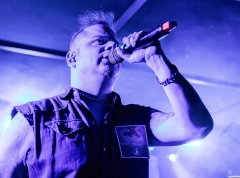

 Twitter
Twitter Facebook
Facebook